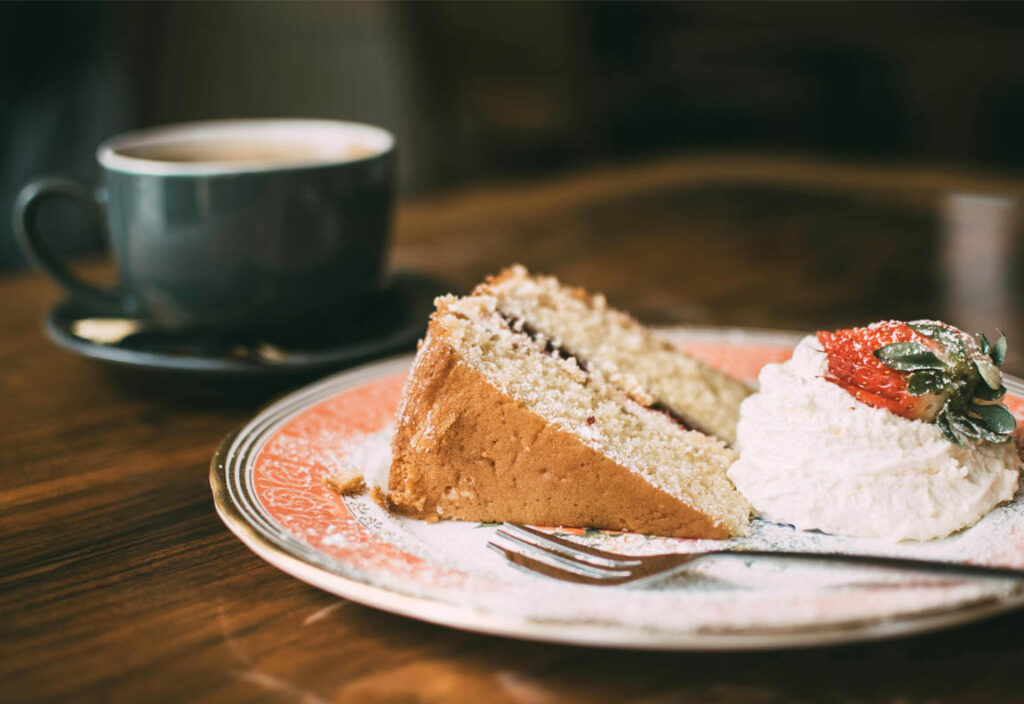Sugar. It’s in your chai, your toast, your ketchup — even in foods you thought were “healthy.”
We eat it every single day, often without knowing how much. But what if I told you sugar isn’t just an innocent sweetener?
What if it’s a slow, sweet poison — silently rewiring your body, your hormones, and even your brain?
No fear-mongering here. Just truth — backed by science, served with empathy.
What Happens to Your Body Right After You Eat Sugar?
- Instant Energy Spike: The moment sugar enters your body, your blood sugar shoots up, giving you that temporary “high.”
- Insulin Rush: Your pancreas panics and releases insulin to lower sugar levels. Do it too often, and your cells start ignoring insulin. Hello, insulin resistance.
- Liver Overload: Fructose (a type of sugar) heads straight to your liver. When there’s too much, your liver converts it into fat. This is how fatty liver starts.
- Hormonal Chaos:
- Leptin (the “I’m full” hormone) stops working → You keep eating.
- Cortisol (stress hormone) spikes when your sugar crashes → Mood swings, irritability.
- Dopamine (reward chemical) lights up → You feel good. Addicted even.
The more sugar you eat, the more your body begs for it. This is not hunger. It’s withdrawal.
The Hidden Faces of Sugar: 60+ Aliases to Watch Out For
Sugar wears many masks on food labels. If you’re only checking for “sugar,” you’re missing 90% of the problem.
Here are some of its common disguises (with real-world examples):
- Sucrose – Table sugar used in chai, sweets, and cakes.
- Glucose – Found in glucose biscuits, sports drinks.
- Fructose – Natural in fruits but added in juices, canned fruits.
- Dextrose – Common in processed snacks, IV fluids.
- Maltose – Found in cereals, malted milk drinks.
- High-Fructose Corn Syrup (HFCS) – Present in soft drinks, packaged juices, and bakery goods.
- Cane juice – Found in “organic” sugar substitutes and drinks.
- Invert sugar – Used in jams, jellies, and syrups.
- Agave nectar – Marketed as a healthy sweetener, used in health bars.
- Rice syrup – Common in vegan products and cereals.
- Fruit juice concentrate – Used in “no added sugar” juices.
- Caramel – Found in candies, desserts, and colas.
Bottom line: If it ends in -ose or sounds sweet, it probably is.
Where Sugar Hides in Your Everyday Diet
Even if you don’t add sugar to your food, it’s already there.
- Breakfast Cereals: Marketed as healthy but often 20–30% sugar.
- Flavored Yogurts: One cup can have 3–4 teaspoons of sugar.
- Bread & Roti: Especially white or packaged ones.
- Ketchup & Sauces: Nearly 1/4th of the bottle is sugar.
- Fruit Juices: A single glass = sugar of 3–4 fruits, minus the fiber.
- Energy Bars: Sugar is often the first or second ingredient.
- Biscuits, Crackers, Digestive Cookies: Loaded.
Check the labels next time. You’ll be shocked.
How Sugar Affects Kids, Adults & 40+ Age Group Differently
👶 Kids: The Silent Damage Starts Early
- Brain Development Gets Disrupted
Sugar spikes insulin and dopamine again and again. This interferes with how the child’s brain wires itself — leading to poor memory, emotional imbalance, and learning difficulties.
Example: A sugary breakfast cereal before school can impair focus in class. - Triggers Hyperactivity & Attention Issues
High sugar → Fast energy → Crash → Irritability. Many studies link excess sugar to hyperactivity, impulsiveness, and attention issues like ADHD symptoms. - Childhood Obesity Rises Sharply
Sweetened juices, biscuits, chocolates, and junk food pile up hidden sugar.
Kids gain weight without nutrition → Early signs of diabetes and PCOS in girls. - Weakens Immunity
Even small sugar overloads suppress white blood cells for hours — making kids more prone to cold, flu, and infections. - Creates Sugar Dependence Early
If sugar becomes an emotional comfort (reward, bribe, or habit), it sets a lifelong pattern.
“Mujhe meetha chahiye warna mood kharab hai” — starts young.
🧑 Adults (20–40 years): Sugar Hijacks Your Hormones
- Mood Swings & Anxiety Become Frequent
That feel-good sugar rush fades fast — leaving you drained, anxious, or emotionally low.
This rollercoaster becomes invisible but daily. - Hormonal Imbalance Worsens
- Women face irregular periods, PCOS, and increased acne.
- Men experience fatigue and lower testosterone over time.
- Energy Slumps & Gut Issues
Sugar feeds bad bacteria in your gut → bloating, acidity, and poor digestion.
Also causes daytime sleepiness despite eating full meals. - Weight Gain & Metabolic Slowdown
Belly fat increases — not just from calories, but from insulin resistance.
This makes fat harder to lose, especially if you’re desk-bound or stressed. - Sugar Addiction Becomes Real
You crave more sugar to feel okay — often disguised as snack hunger, chai craving, or “mood boost.”
🧓 40+ Age Group: Sugar Turns Silent into Serious
- Heart Attack & Stroke Risk Rises Sharply
High sugar = chronic inflammation + bad cholesterol + insulin resistance.
Together, they damage your arteries silently — till one day it’s not silent. - Triggers or Worsens Type 2 Diabetes
Your cells become more insulin-resistant with age. Add sugar, and it’s like adding fuel to fire.
One sweet mithai after lunch every day could be the tipping point. - Memory & Brain Health Declines
Sugar causes inflammation in the brain.
Studies link high sugar to Alzheimer’s — often called “Type 3 diabetes.” - Weakens Bones (Especially in Women)
Sugar leaches calcium from your bones.
Combined with post-menopausal changes, it increases osteoporosis risk. - Fatty Liver & Belly Fat Spike
Even thin people over 40 are developing Non-Alcoholic Fatty Liver Disease (NAFLD) due to excess fructose from sugar. - Slows Down Healing & Increases Pain
High sugar = high inflammation. Joints hurt more. Wounds heal slowly. Skin ages faster.

What Does Science Say?
- A Harvard study found that people who consume high added sugars have a 38% higher risk of dying from heart disease.
- The JAMA (2014) study showed people who got more than 25% of their daily calories from sugar had double the risk of heart disease.
- The Lancet study revealed that every additional sugary drink increases obesity risk in kids by 60%.
- Yale University found that sugar activates the brain’s reward system just like cocaine.
Shocking? Yes. Surprising? It shouldn’t be.
WHO Recommendations vs. Real Life
- WHO recommends max 25g (6 teaspoons) of added sugar/day.
- An average Indian adult consumes 60–90g per day.
- A single can of soda = 10 teaspoons. That’s your daily limit—blown in 10 minutes.
How to Cut Sugar Without Hating Your Life
- Read ingredient lists — not just the sugar column.
- Switch to natural options — jaggery, dates, or stevia (in moderation).
- Eat fruits, not juices. Whole fruits have fiber that slows sugar absorption.
- Avoid “low-fat” products — often high in sugar to compensate for taste.
- Don’t drink your sugar. Soft drinks, energy drinks, and packed juices are the worst offenders.
Start small. Your body will thank you.
FAQs About Sugar (Real Questions, Real Answers) ❓
Q1. Why is sugar called poison?
Because it disrupts hormones, adds fat, inflames your body, and accelerates aging — silently and slowly.
Q2. Is natural sugar in fruits also bad?
No. Whole fruits come with fiber and antioxidants, which protect your body. Added sugar is the real villain.
Q3. What are the hidden names of sugar I should watch out for?
Look out for fructose, glucose, maltose, dextrose, HFCS, syrup, juice concentrate, and anything ending in –ose.
Q4. How does sugar affect mental health?
It spikes dopamine (pleasure), but later crashes can cause anxiety, depression, and fatigue.
Q5. What is the safe sugar limit per day?
WHO says: 6 teaspoons max. But many people consume 3–4 times that without knowing.
Final Thought 💭
Sugar isn’t just in your food — it’s in your habits, in your emotions, in your childhood memories. That’s why it’s hard to give up. But now you know what it’s doing to your body, to your family, and to your future.
This isn’t about fear. It’s about power. The power to choose better. To live longer. To feel lighter.
So next time you reach for that sweet snack, ask yourself: Is this pleasure worth the poison?
Your Turn (CTA) 📢
Which sugar habit are you ready to break first?
Tell us in the comments — or share this with someone who needs a gentle sugar wake-up call. 💌
Let’s begin this sweet detox, together.
📲 Stay Connected with E-Vichar
🔵 Follow us on Facebook for more updates, new blogs, and powerful wellness insights:
👉 facebook.com/people/E-Vichar/61577438743345




